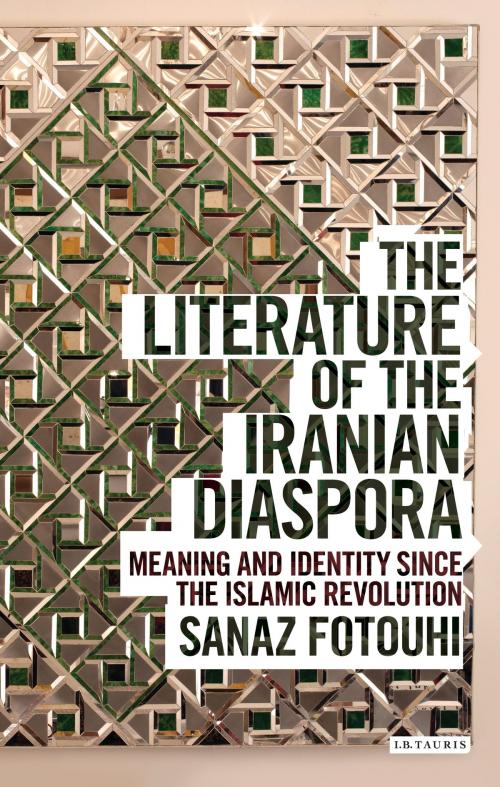The Literature of the Iranian Diaspora
Meaning and Identity since the Islamic Revolution
Fiction & Literature, Literary Theory & Criticism, Nonfiction, Social & Cultural Studies, Social Science, History| Author: | Sanaz Fotouhi | ISBN: | 9780857737663 |
| Publisher: | Bloomsbury Publishing | Publication: | April 3, 2015 |
| Imprint: | I.B. Tauris | Language: | English |
| Author: | Sanaz Fotouhi |
| ISBN: | 9780857737663 |
| Publisher: | Bloomsbury Publishing |
| Publication: | April 3, 2015 |
| Imprint: | I.B. Tauris |
| Language: | English |
The 1979 Revolution in Iran caused the migration of millions of Iranians, many of whom wrote of, and are still writing of, their experiences. Sanaz Fotouhi here traces the origins of the emerging body of diasporic Iranian literature in English, and uses these origins to examine the socio-political position and historical context from which they emerged. While situating this body of work through existing theories such as postcolonialism, Fatouhi sheds new light on the role of Iranian literature and culture in Western literature by showing that these writings distinctively reflect a diasporic experience unique to Iranians. Analysing the relationship between Iranians and their new surroundings by drawing on theories of migration, narration and identity, Fotouhi examines how the literature borne out of the Iranian Diaspora reflects socio-political realities today. The first of its kind, this book will be vital for researchers of Middle Eastern literature and its relationship with writings from the West, as well as those interested in the cultural history of the Middle East.
The 1979 Revolution in Iran caused the migration of millions of Iranians, many of whom wrote of, and are still writing of, their experiences. Sanaz Fotouhi here traces the origins of the emerging body of diasporic Iranian literature in English, and uses these origins to examine the socio-political position and historical context from which they emerged. While situating this body of work through existing theories such as postcolonialism, Fatouhi sheds new light on the role of Iranian literature and culture in Western literature by showing that these writings distinctively reflect a diasporic experience unique to Iranians. Analysing the relationship between Iranians and their new surroundings by drawing on theories of migration, narration and identity, Fotouhi examines how the literature borne out of the Iranian Diaspora reflects socio-political realities today. The first of its kind, this book will be vital for researchers of Middle Eastern literature and its relationship with writings from the West, as well as those interested in the cultural history of the Middle East.















